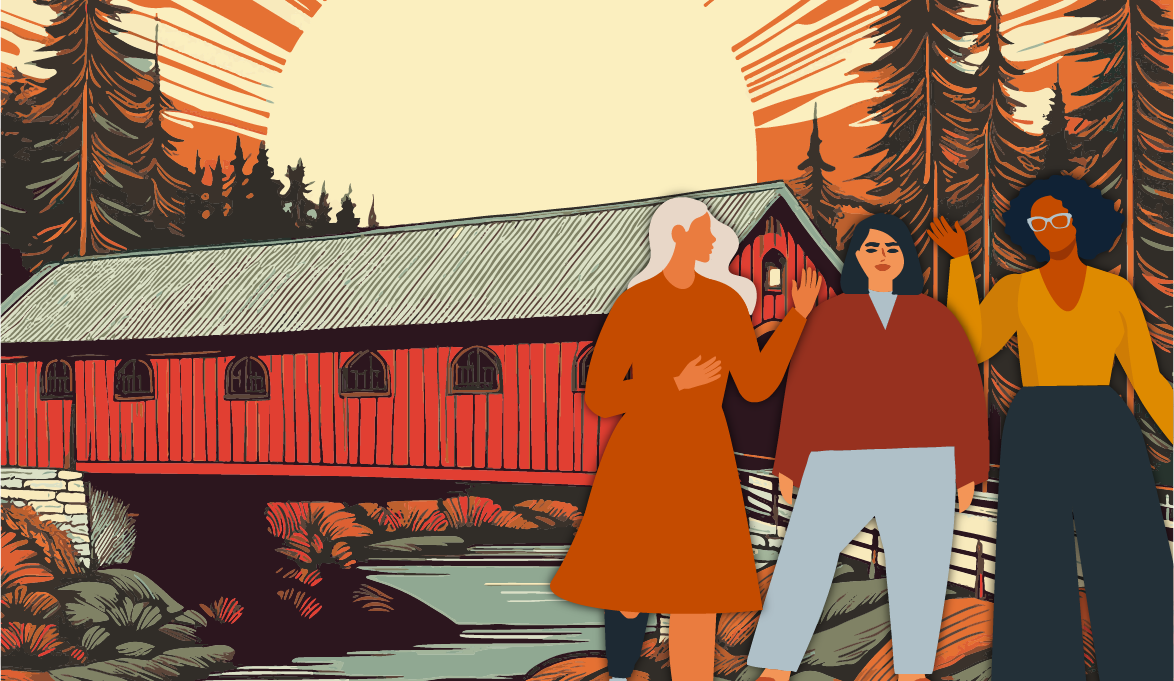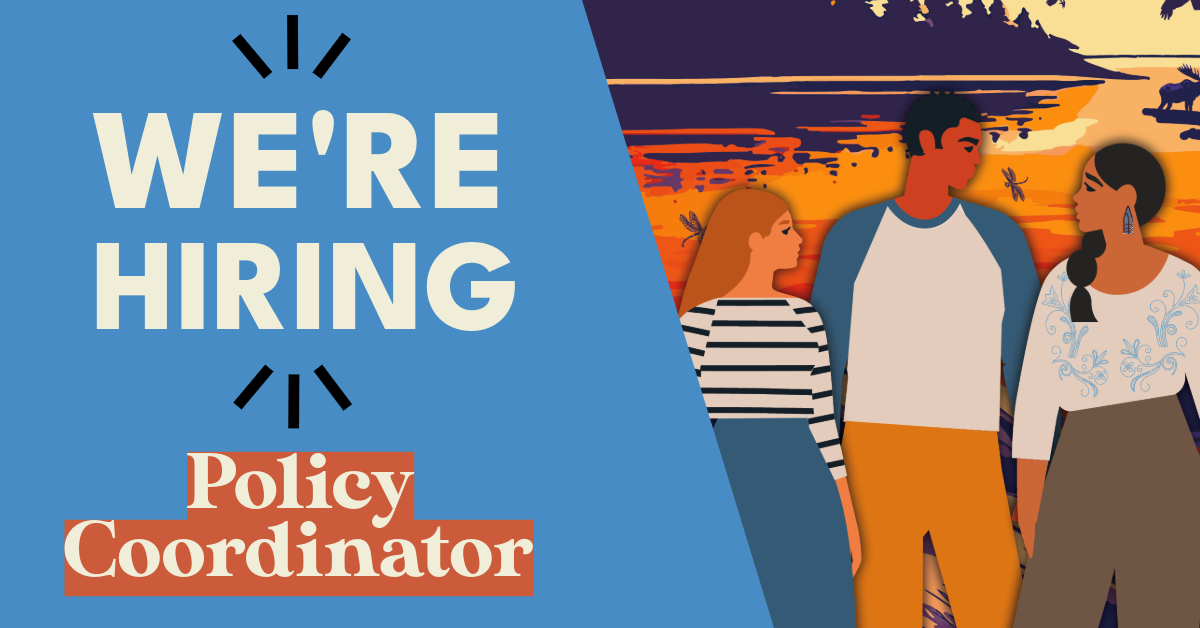
Public Narrative Change Grant
Date:
What is the grant for?
The Public Narrative Change Grant will fund public events that change the way we talk about race, history, and justice. The goal is to tell the truth about how we got here, push back on harmful misconceptions, and bring people together around true stories that reflect our values: honesty, freedom, justice, and community.
You can apply for up to $10,000 to plan and run a public event or series of events that help shift public understanding in a positive direction. This includes telling stories that are often left out, lifting up community voices, and helping people understand that we can build a better future if we join together across race and place.
What is Narrative Change:
Narrative change means using stories, images, and events to change how people understand a topic. It’s about challenging harmful myths and stereotypes, telling the truth about our history, and showing that a better future is possible.
This work helps people see that the systems around us—who has power, who gets resources, and whose stories get told—didn’t happen by accident. They were created by people, and they can be changed by people too.
Grants will support eligible organizations through one-time funding to develop and implement narrative change events designed to accomplish one or more of the following goals:
| Goal | Example Project |
|---|---|
|
Push back on harmful stereotypes and misconceptions about people of color, immigrants, tribal citizens, or other groups who have been treated unfairly—and that injustice ultimately harms everyone in Maine. |
The Unveiling Hidden Histories Educational Series will confront the myth of Maine as a “white state” by spotlighting the long-standing presence and contributions of Wabanaki and African American communities. Through public events that center firsthand storytelling and local history, the series will replace false narratives with truth, dignity, and humanity. |
|
Show how communities are working together across race and place to solve problems, celebrate culture, and take care of each other. |
The events will be developed in partnership with Indigenous leaders, Black historians, and local organizations. Speakers and panelists will reflect a range of lived experiences and cultural knowledge, modeling what it looks like to work together across communities to preserve truth, share resources, and build understanding. |
|
Tell the truth about our history—including things like colonization, broken treaties, slavery, and unfair laws—and help people understand how that history still shapes life in Maine today. |
Through keynote talks, panel discussions, and video interviews with descendants and historians, the series will examine the deep roots of colonization, slavery, and exclusion in Maine—and how those histories continue to impact communities today. By facing the hard truths together, we open the door to healing and change. |
|
Help people imagine a better future—and show what it looks like when fairness, community, and responsibility are part of public life. |
The events will emphasize that telling the truth about the past is not about shame—it’s about building a future where all people in Maine are seen, valued, and included. Participants will be invited to envision a state where no one is left out, and where cultural truth and public memory belong to all of us. |
We encourage applicants to embrace creativity and inclusivity, ensuring that all individuals, especially those facing additional barriers, are actively engaged in the development and implementation of their initiatives. Together, we will deepen relationships, invest in communities, support innovation, and ultimately build thriving, healthy, and resilient communities, where nobody – no matter our race, faith, zip code, or ancestors – gets left behind.
If your organization has an idea for a public event or series that meets these goals, please submit your application to us for consideration!
Who is eligible to apply?
In order to qualify, organizations must be:
- Based in and legally authorized to operate in Maine, and
- Currently involved in work to shift narratives, challenge stereotypes, or uplift honest history and community stories.
Organizations with multiple affiliated locations across the state should submit a single application. If you have any questions regarding your eligibility, please reach out to the Permanent Commission at the contact below.
How much funding is available?
The Permanent Commission is offering one-time awards with a maximum amount of $10,000.
Selected partners will enter into a Low Cost Service Contract (LCSC) to begin project implementation. Contracts will provide for partners to submit two invoices during the course of the contract for work that has been completed and expenses incurred.
Please note: Payment can not be made in advance. Contracts will provide for partners to submit two invoices over the course of the contract for work that has been completed and expenses incurred.
What types of expenses are allowable/ unallowable?
Examples of allowable expenses include (but are not limited to):
- Physical space rental,
- Light refreshments, non-alcoholic beverages, and other accommodation costs associated with the proposed project,
- Staff time, consultant time, and material costs for any activities directly related to the project, including community outreach, identified needs to address participant barriers (such as childcare or transportation), educational activities, data collection, and expenses related to developing communications materials, such as printing, design, videography, photography, and ad placement.
- Staff time associated with attending project meetings with the Permanent Commission and developing/delivering a final report to the Permanent Commission describing the project activities, fund uses, and any other agreed upon reporting content.
- Up to 10% maximum of indirect costs.
Examples of unallowable expenses include (but are not limited to):
- Lobbying,
- Goods and services for personal use,
- Goods, services, or staff time for work outside of the approved project, or
- Fines, penalties, damages and other settlements.
Project budgets must be submitted as part of the application process and any amendments agreed in advance with the Permanent Commission.
What does a strong application look like?
Please see below an example of a completed application, which you may use as a reference when completing your own unique application.
This application example is designed to provide information on the level of detail the Permanent Commission expects from applicants. Please do not consider this example as a template to be copied or any indication of departmental preference for certain types of project proposals. We encourage you to share project ideas that best suit the needs of your organization and community.
If selected, what requirements are there?
Selected partners will be required to:
- Have or obtain a State of Maine vendor number. Permanent Commission staff will provide necessary support to obtain this.
- Enter into a low-cost service contract with the Permanent Commission.
- Submit two invoices for work undertaken in accordance with the approved budget and work plan. Note: expenditures should occur before the end of June 2026.
- Submit a written final report within 30 days of the funded event that describes the project activities, how the funds were used, and includes any other reporting content agreed with the Permanent Commission based on the specific project. (note: we will provide a template which will also include the opportunity to provide feedback to us).
- Include the Permanent Commission’s logo on any promotional materials as a project sponsor and make space for Permanent Commission tabling at an event (if relevant and appropriate for the type of event).
What is the grant timeline?
|
Application Deadline |
EXTENDED: September 19 |
|
Application Review |
September 15 - October 1 |
|
Send Decision Notifications and Approve Contracts |
October 1 - October 25 |
|
Contract Start (Earliest date to hold events) |
November 15 |
|
Contract Close |
June 30, 2026 |
When is the application deadline?
The Permanent Commission is accepting applications through 11:59 p.m. on September 19, 2025.
Who can I reach out to with more questions?
You can contact Morgan Urquhart, Communications Coordinator at morgan.e.urquhart@maine.gov with any additional questions.










